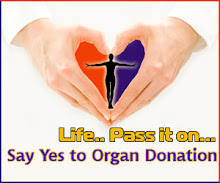Australians are aghast over reports that an elderly Sydney woman with kidney disease flew in a younger woman from the Philippines in order to get her kidney.
The Sydney Morning Herald reports the younger woman had not fully consented to the plan, which was discovered during routine hospital screening interviews before the transplant was to have taken place.
Australian Federal Police has said in a statement that a search warrant has been executed at a home in New South Wales state. No one has been arrested but the investigation is continuing.
The Minister for Justice, Brendan O'Connor, told the newspaper that trafficking for the purpose of harvesting organs was an international problem, but it was rare in Australia.
''Irrespective of the type of exploitation, human trafficking follows the same premise: that people are trafficked to supply a demand - be it sex, labour or human body parts,'' he said.
More than two-thirds of trafficking cases in the year to June 30 were related to sexual exploitation with most of the remainder concerning labour exploitation, Mr O'Connor said. Donations by ''genetically or emotionally related donors'' was a well-established practice recognised at home and abroad as being ethically acceptable, he said.
The director of the Anti-Slavery Project at the University of Technology Sydney, Jennifer Burn, said donor consent was irrelevant when obtained by threat, deception, payment or abuse of a vulnerable person.
''There is a global shortage of organs for transplantation and this is giving rise to exploitative conduct and the possibility of grave harm being caused to people who themselves are vulnerable,'' she said.
As most other developing countries, Philippines also offers a fertile ground for organ seekers. People are so poor that they would do anything for a living. When they can live with just one kidney, why not sell the other and make some money?
India was rocked by a scam over kidney-selling by tsunami victims a couple of years ago. But such transactions usually take place in situ, as it were. A troubling dimension of medical tourism is the rich on the hunt for poor donors. But this is the first time perhaps that the donor is flown into the country of the recipient.













